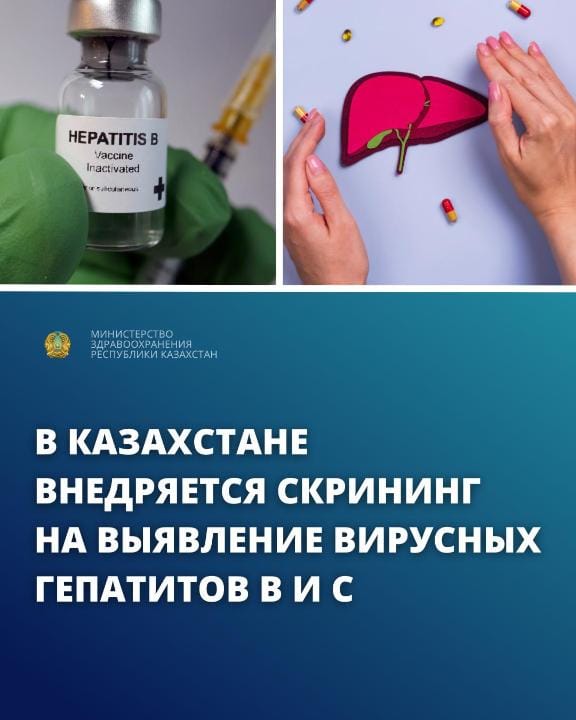To reduce the incidence of viral hepatitis, Kazakhstan plans to conduct comprehensive screening for hepatitis B and C among people over 18 years old.
The results of the pilot program for early detection of hepatitis B and C infections, as well as further steps to implement measures to reduce the incidence in the country, were discussed during a meeting between the Minister of Health, Akmaral Alnazarova, and the Director of the Center for Disease Analysis Foundation (CDAF), Dr. Homie Razavi.
One of the main and important goals of the WHO program to eliminate viral hepatitis by 2030 is timely diagnosis.
Since hepatitis B and C mainly have a hidden (asymptomatic) course, in 65% of cases they lead to the development of cirrhosis or liver cancer, which, in turn, results in mortality and disability among the infected population. Therefore, it is important to ensure the early detection and treatment of infection carriers, as they are sources of viral hepatitis for others. Based on the results of the pilot program, a decision was made to start comprehensive screening for hepatitis B and C among people over 18 years old in Kazakhstan using effective diagnostic solutions.


Stay tuned for updates on our website https://ksph.edu.kz/ and the Mediclub Telegram channel.


